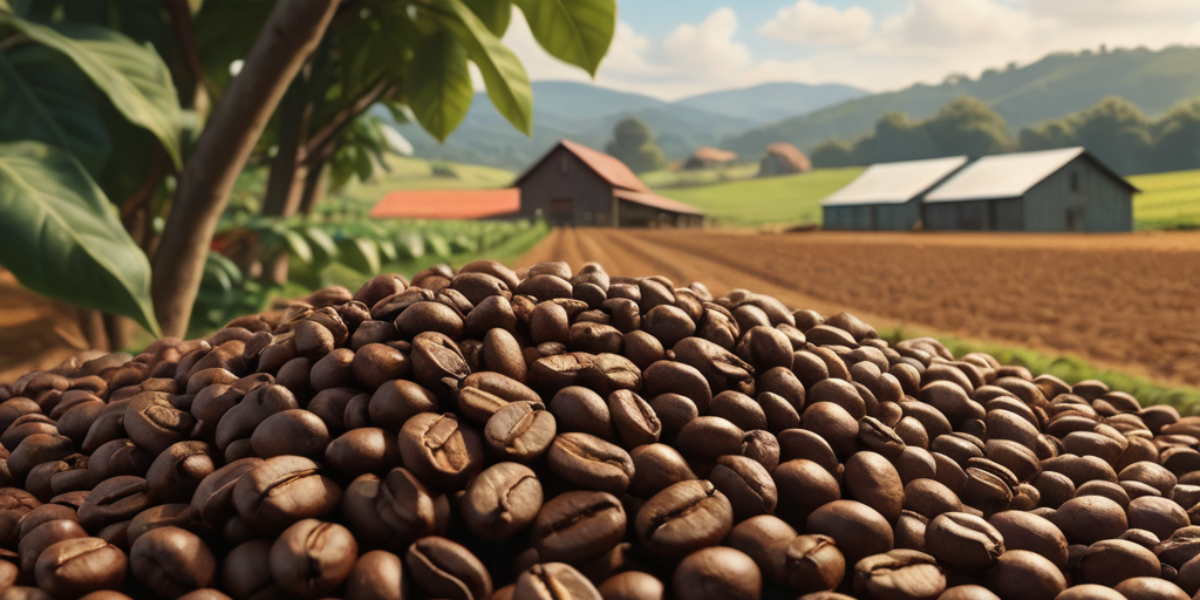Bean to Blockchain: How Technology is Transforming Coffee Production
The world of coffee is undergoing a revolution, and it’s not just about discovering new flavors or trends. Technology is making significant waves in the coffee industry. It’s transforming the way coffee is grown, processed, and consumed. From the lush fields where coffee beans are cultivated to the blockchain technology ensuring transparency. Let’s dive into the exciting intersection of coffee and technology and explore how this dynamic duo is shaping the future of our favorite beverage.
The Digital Transformation of Coffee Farming
Farming is where the journey of every coffee bean begins. Traditionally, coffee farming has been labor-intensive, with farmers relying on age-old methods to cultivate their crops. However, modern technology is bringing about a sea change in how coffee is grown and harvested.
Precision Agriculture
Precision agriculture is a game-changer for coffee farmers. Using drones, GPS mapping, and sensor technology, farmers can monitor their crops with pinpoint accuracy. This technology allows them to track soil health, moisture levels, and pest activity in real-time. By having access to this data, farmers can make informed decisions, optimize resources, and improve crop yields.
Climate-Smart Farming
Climate change poses significant challenges to coffee production, affecting optimal growing conditions. Innovative solutions like climate-smart farming are helping farmers adapt. Advanced weather forecasting tools and climate-resilient crop varieties are enabling farmers to mitigate the impact of climate change and ensure sustainable coffee production.
Automation in Coffee Processing
Once the coffee cherries are harvested, they undergo a series of processing steps to extract the beans. Technological advancements are streamlining and enhancing these processes, ensuring quality and efficiency.
Automated Sorting and Grading
Sorting and grading coffee beans is a labor-intensive process that requires precision. Automated sorting machines equipped with AI and machine learning capabilities are now being used to evaluate beans based on size, color, and quality. These machines can process large quantities of beans quickly and accurately. This in turn reduces labor costs and ensures consistent quality.
Advanced Drying Techniques
Drying is a crucial step in coffee processing, as it affects the final flavor profile of the beans. Modern drying techniques, such as solar-powered drying systems and controlled-environment drying chambers, are improving the efficiency and consistency of this process. These advancements help maintain the quality of the beans and reduce the risk of spoilage.
Blockchain: Ensuring Transparency and Traceability
One of the most groundbreaking technologies influencing the coffee industry is blockchain. Blockchain technology provides a decentralized and immutable ledger, offering unparalleled transparency and traceability in the supply chain.
Transparent Supply Chains
Blockchain technology allows every step of the coffee supply chain to be recorded and verified. From the farm where the beans are grown to the roaster and finally to the consumer, every transaction is logged on the blockchain. This transparency ensures that consumers can trace the origin of their coffee and verify its authenticity.
Fair Trade and Ethical Sourcing
Blockchain is also playing a crucial role in promoting fair trade and ethical sourcing. By providing a transparent record of transactions, blockchain ensures that farmers are paid fair prices for their coffee. Consumers can make informed choices and support brands that prioritize ethical sourcing and sustainability.
Smart Coffee Machines and IoT
The technological transformation of coffee production doesn’t stop at the farm or processing plant. It extends to the very machines we use to brew our daily cup of joe.
Smart Coffee Makers
Smart coffee makers connected to the Internet of Things (IoT) are revolutionizing the way we brew coffee at home. These machines can be controlled via smartphone apps, allowing users to customize brewing parameters such as grind size, water temperature, and brew time. Some smart coffee makers even have built-in sensors that monitor the freshness of the coffee.
Remote Monitoring and Maintenance
IoT technology enables remote monitoring and maintenance of commercial coffee machines. Coffee shops and roasters can track the performance of their machines in real-time, receive alerts for maintenance issues, and ensure optimal brewing conditions. This technology reduces downtime, improves efficiency, and ensures a consistently high-quality cup of coffee.
The Future of Coffee: Sustainability and Innovation
As technology continues to evolve, the future of coffee production looks promising, with a strong focus on sustainability and innovation.
Sustainable Practices
Sustainability is at the forefront of technological advancements in the coffee industry. Innovations such as biodegradable coffee pods, eco-friendly packaging, and carbon-neutral coffee roasting are reducing the environmental impact of coffee production.
Genetic Research and Crop Improvement
Advancements in genetic research are paving the way for improved coffee varieties that are more resistant to diseases and pests. By leveraging genetic engineering and biotechnology, scientists are developing coffee plants that can thrive in changing climates and produce higher yields. These innovations are crucial for ensuring the long-term sustainability of coffee production.
Customization and Personalization
Technology is also driving customization and personalization in the coffee industry. From personalized coffee subscriptions based on taste preferences to AI-powered coffee roasters that consistently create the perfect roast, consumers are enjoying a more tailored coffee experience. This trend is likely to continue, with technology enabling even greater customization and enhancing the overall coffee journey.
Conclusion: Embracing the Coffee-Tech Revolution
The fusion of coffee and technology is transforming every aspect of the coffee production process, from farm to cup. Precision agriculture, automation, blockchain, and IoT are driving efficiency, transparency, and sustainability in the industry. As we embrace these innovations, we can look forward to a future where coffee production is not only more efficient but also more ethical and environmentally friendly.
Next time you sip your morning coffee, take a moment to appreciate the technological marvels that have contributed to its journey. From the digital tools used by farmers to the blockchain ensuring its authenticity, technology is enhancing the quality and sustainability of our beloved brew. Cheers to the exciting future of coffee – one that’s powered by innovation and driven by our passion for the perfect cup!

